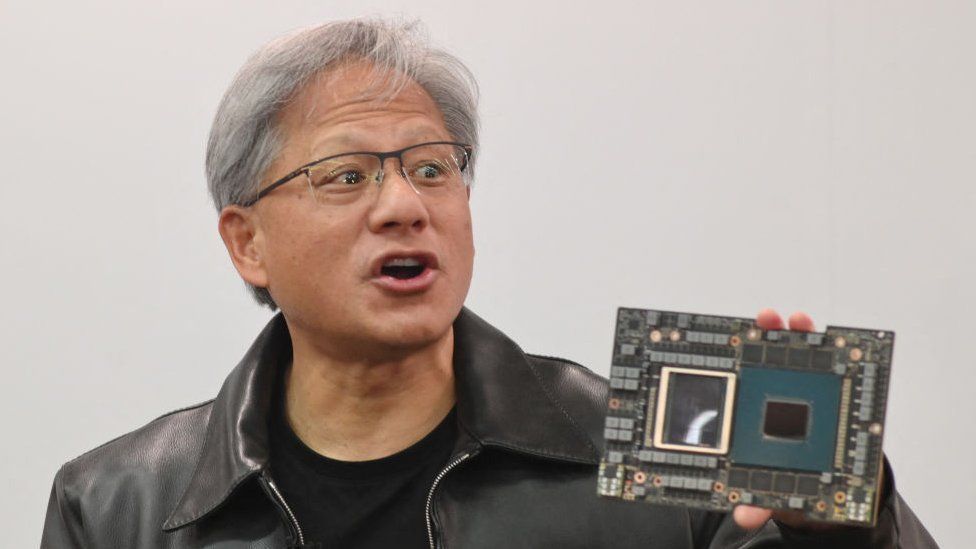Technology giant Nvidia says its sales have hit a record after more than doubling as demand for its artificial intelligence (AI) chips soars.
The company says revenue jumped to above $13.5bn (£10.6bn) for the three months to the end of June.
Nvidia also expects sales to soar further in the current quarter and plans to buy back $25bn of its stock.
The firm’s shares rose by more than 6.5% in extended trading in New York, adding to their huge gains this year.
Nvidia also said it expects revenue of around $16bn for the three months to the end of September.
That is much higher than Wall Street expectations and would equate to a rise of around 170% compared to the last quarter.
“A new computing era has begun,” Nvidia’s chief executive, Jensen Huang, said in a statement.
“Companies worldwide are transitioning from general-purpose to accelerated computing and generative AI,” he added.
The strong performance was driven by Nvidia’s data centre business, which includes AI chips.
Revenue for that unit came in at more $10.3bn, a rise of more than 170% from year ago, as cloud computing service providers and large consumer internet companies snapped up its next-generation processors.
This year, Nvidia’s stock market value has jumped to more than $1 trillion as its shares more than tripled in value.
That made it the fifth publicly traded US company to join the so-called “Trillion dollar club”, along with Apple, Microsoft, Alphabet and Amazon.
Nvidia was originally known for making the type of computer chips that process graphics, particularly for computer games.
Now its hardware underpins most AI applications, with one report finding it had cornered 95% of the market for machine learning.
ChatGPT – which generates human-like responses to user queries within seconds – was trained using 10,000 of Nvidia’s graphics processing units clustered together in a supercomputer belonging to Microsoft.
AI products are expected to dramatically change how we use computers and the role they play in our lives.
Related Topics
- Artificial intelligence
- Nvidia
